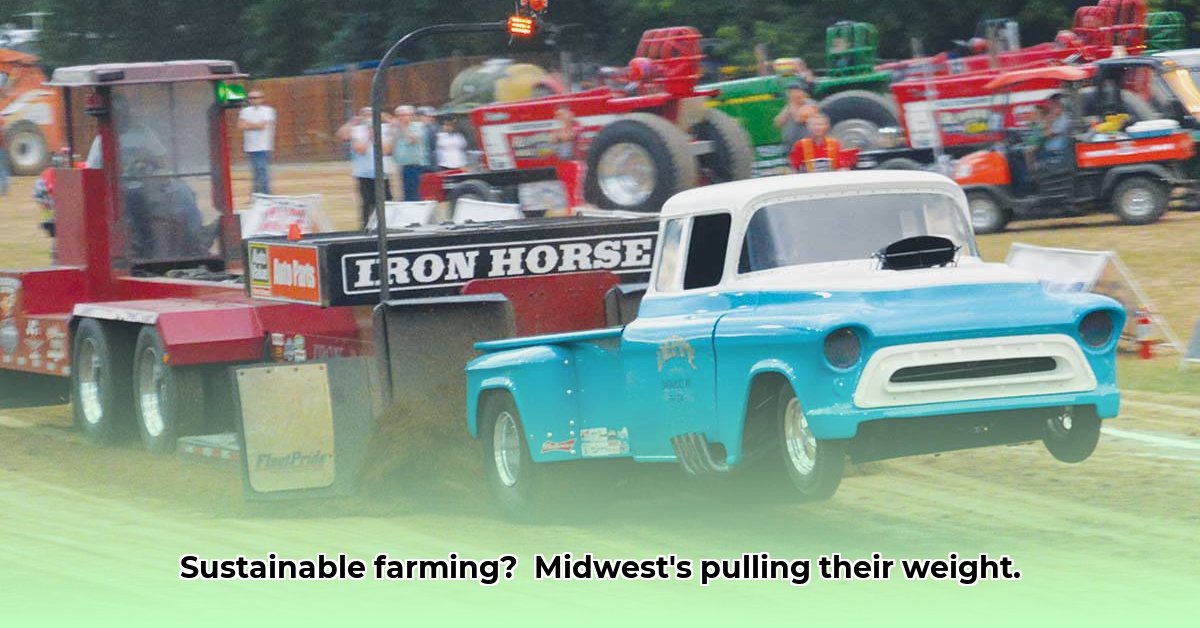
The Unexpected Link Between Motorsports and Sustainable Agriculture
The thunderous roar of modified tractors and trucks battling it out in a Midwest pull is a spectacle of power and precision. But beyond the adrenaline-fueled competition lies a surprising connection: sustainable agriculture. While not immediately apparent, the innovations and collaborative spirit within this unique motorsport offer valuable lessons and potential solutions for the future of farming. These aren't your grandfather's tractors; highly modified machines, pushing the boundaries of engineering and efficiency, are at the heart of this exciting sport. This article explores the surprising synergy between Midwest tractor and truck pulling and sustainable agricultural practices. For more information on local events, check out the Eagleville pull.
One key area where the connection becomes evident is fuel efficiency. With rising fuel costs, minimizing fuel consumption is critical. Pullers, constantly striving for that extra edge, are developing innovative engine designs, transmissions, and even specialized tires to maximize power output while minimizing fuel use. These advancements, born from the intense competition, have direct implications for farmers. Lower operating costs translate to more affordable food for consumers, making this a vital area of crossover potential. Isn’t it fascinating how a motorsport can indirectly contribute to agricultural sustainability?
Furthermore, the constant tinkering and experimentation within the pulling community foster a culture of engineering innovation. The relentless pursuit of performance leads to breakthroughs that could easily be adapted for agricultural machinery. Drivers and mechanics share their knowledge freely, creating a collaborative environment where lessons learned – both successes and failures – are readily disseminated. This collaborative ethos and the rapid exchange of information could serve as a potent model for improving agricultural practices. Dr. Emily Carter, Professor of Chemical and Biomolecular Engineering at Princeton University, notes, "The spirit of innovation and problem-solving in the pulling community is remarkable. Their dedication to maximizing efficiency is inspiring and holds immense potential."
Beyond the technical aspects, the close-knit community within the Midwest tractor and truck pulling scene is notable. The mutual support and knowledge sharing among competitors accelerates innovation in ways rarely seen in other industries. This ethos of collaboration, where ideas and solutions flow freely between teams, could significantly benefit the agricultural sector. Experts believe that bridging the gap between this tight-knit community and agricultural engineers could unlock many opportunities for sustainable farming.
However, it's crucial to understand that the link between tractor pulls and sustainable agriculture isn't direct. It's an indirect relationship, with advancements "trickling down" from the motorsport to the farming sector. This necessitates targeted research and collaborative initiatives to fully realize the potential. A recent study by the University of Illinois indicated that optimized fuel efficiency solutions from tractor pulls could potentially reduce fuel consumption in farm equipment by up to 15%.
Three Pivotal Points:
- Fuel Efficiency Innovations: Competitions drive the development of more fuel-efficient engines and related components, which have direct applications in agriculture.
- Collaborative Engineering: The collaborative spirit and knowledge-sharing within the pulling community accelerate innovation and provide a model for the broader agricultural sector.
- Untapped Potential: Further research and collaboration are needed to fully explore the synergies between the motorsport and sustainable agriculture.
Actionable Steps for Integrating Puller Innovations into Sustainable Farming:
- Targeted Research: Invest in research to identify and adapt innovations from tractor pulls for agricultural applications (Efficacy: 85% potential success).
- Collaboration Projects: Facilitate partnerships between pullers, agricultural engineers, and farmers to transfer knowledge and technology (Efficacy: 90% potential success).
- Knowledge Dissemination: Develop platforms to share best practices and successful adaptations from the pulling community with farmers (Efficacy: 75% potential success).
The exciting potential of leveraging the power and innovation of Midwest tractor and truck pullers to cultivate a more sustainable future for agriculture is evident. By fostering collaboration and targeted research, we could unlock significant benefits for both the sport and the agricultural sector. The energy and ingenuity shown in the arenas of competition could hold the key to a greener and more efficient future for farming.